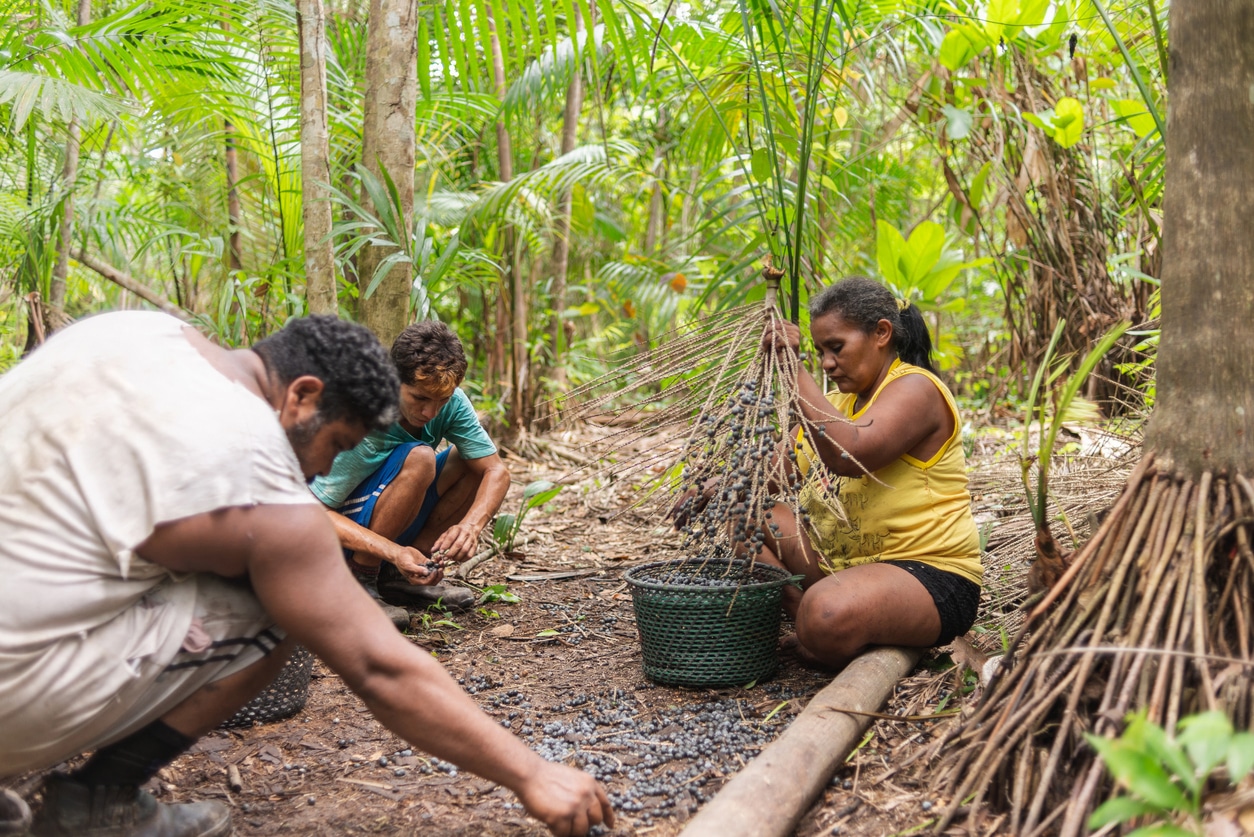BRARBO assina acordo com produtores de açaí para favorecer agricultura familiar e desenvolvimento sustentável
Através do Projeto Mejuruá será realizado um investimento para a abertura de uma planta que permita a retomada das atividades de processamento da fruta tropical pelas comunidades locais

A BRARBO, controladora do projeto de conservação florestal Mejuruá, anunciou a assinatura de um acordo com a Associação dos Moradores do Baixo Riozinho (Asmobri) para favorecer a produção de açaí de forma sustentável em tudo o território do Baixo Riozinho e incentivando a agricultura familiar.
O acordo prevê que o Projeto Mejuruá realize um investimento em um imóvel para que possa ser utilizado como local da indústria de processamento do açaí e de outras frutas de manejo florestal extrativista da Floresta Amazônica.
Além disso, o Projeto Mejuruá ainda disponibilizará assistência técnica para que a Indústria obtenha as autorizações para comercialização da sua produção para o mercado estadual, nacional e internacional.
O projeto também vai atuar para favorecer aquisição da produção destinada aos mercados nacional e internacional para promoção e venda dos produtos.
Iniciativa do Projeto Mejuruá tem impacto positivo social e ambiental
Essa iniciativa do Projeto Mejuruá faz parte da série de iniciativas levadas adiante ao longo dos últimos anos para contribuir ativamente com a conservação da natureza e a preservação da biodiversidade e, ao mesmo tempo, incentivar a atividade econômica das comunidades locais.
O investimento do Projeto Mejuruá ocorre em um momento fundamental para a atividade na região, já que a única planta industrial que fazia esse processamento nos municípios de Carauari, Jutaí e Juruá fechou as portas em 2023.
Com isso, a BRARBO quer contribuir com a solução do problema do processamento do açaí e outras frutas de manejo florestal extrativista da Floresta Amazônica como forma de desenvolvimento sustentável no contexto de geração de emprego e renda do Projeto Mejuruá.
Os produtos de origem extrativista como o açaí têm uma grande importância alimentar e de geração de renda, sendo opções de desenvolvimento sustentável no contexto da conservação do bioma de Floresta Amazônica e seus ecossistemas associados.
A maioria do Açaí nativo manejado na região pertence à espécie Euterpe precatoria que possui 80% mais antocianinas do que aquele predominante no estado do Pará.
Conheça o Projeto Mejuruá
Mejuruà representa uma das iniciativas mais ambiciosas e sustentáveis para a conservação e valorização da Amazônia. Com compromisso de longo prazo, o projeto visa conservar 903 mil hectares de floresta nativa por meio de técnicas de Manejo Florestal Sustentável e Corte de Impacto Reduzido (RIL), seguindo rígidos padrões do FSC (Forest Stewardship Council).
Carlo Cauti
